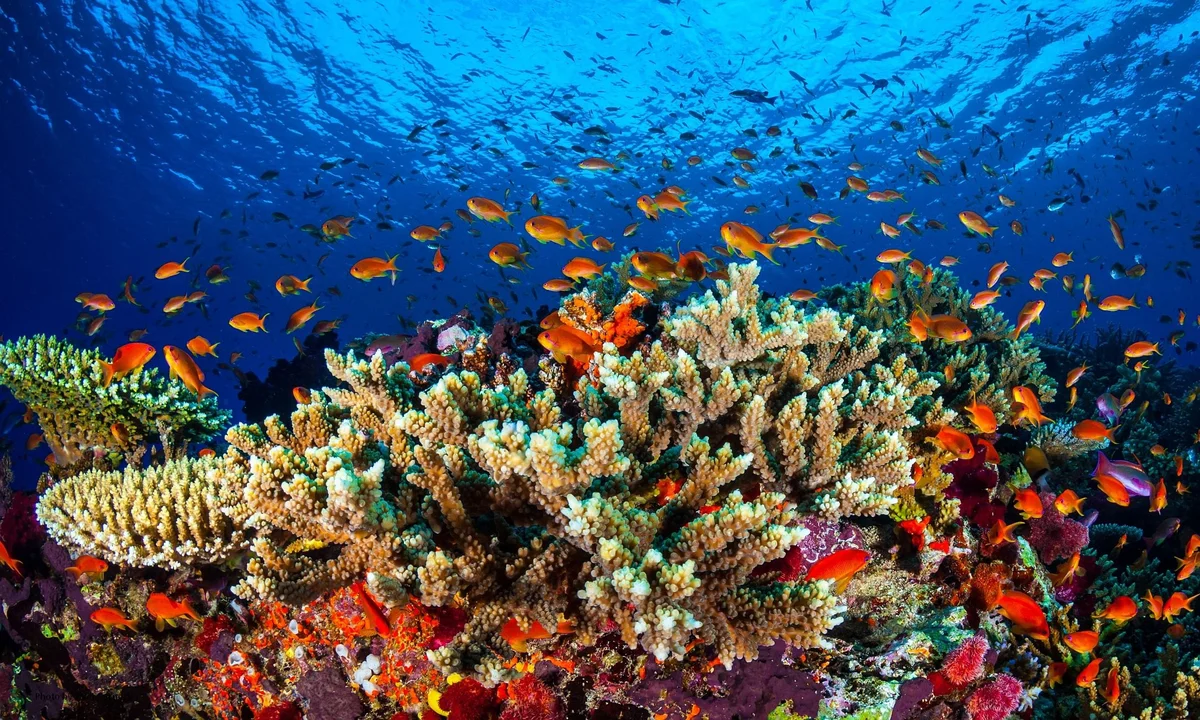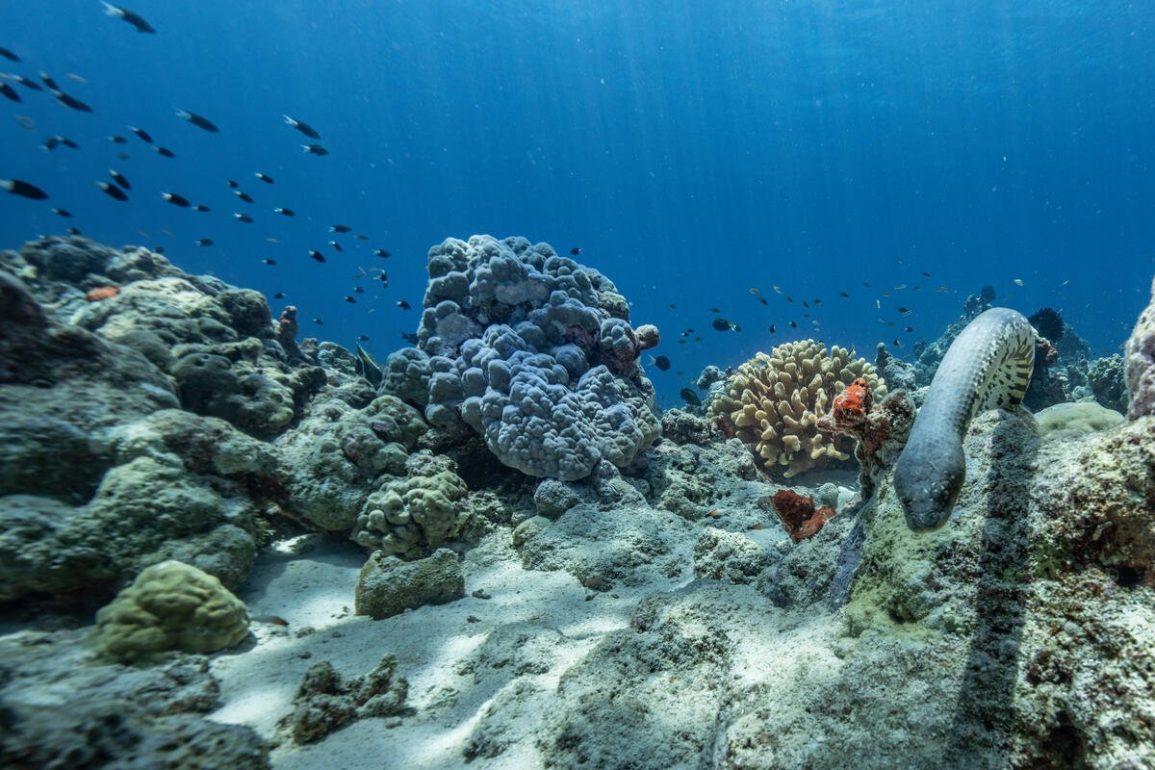Australia’s next phase of fossil fuel development is targeting remote areas, such as Scott Reef, which is a lesser-known but ecologically significant location near the edge of the Australian continental shelf, about 300km from the northwest coast.
Scott Reef, once part of a vast coral ecosystem comparable to the Great Barrier Reef, hosts over 1,500 species, including unique reef-building corals, fish, endangered turtles, sea snakes, and migratory whales.
Dr. Ben Fitzpatrick, a coral reef ecologist, describes Scott Reef as a quintessential coral reef paradise with genetically distinct marine life due to its isolation. The area is a crucial habitat for large marine animals like blue whales and manta rays and serves as an ancient nesting site for turtles.
Despite its ecological significance, Scott Reef is also a target for fossil fuel extraction due to the large untapped gas reserves in the Browse basin.
Woodside Energy, Australia’s largest oil and gas producer, plans to drill in the Browse basin, with wells as close as 3km from Scott Reef. They aim to extract 11.4 million tonnes of gas annually, which would be transported via a 900km undersea pipeline to Karratha.

The Karratha plant, built in the 1980s, could potentially operate for another 50 years if Woodside’s permit application is approved, extending well beyond Australia’s net-zero emission commitments.
The planned industrial development at Scott Reef has raised significant concerns among scientists and environmentalists. Fitzpatrick highlights the risks of chemical pollution, sediment churn, and noise and light pollution, which could severely impact the reef’s ecosystem. He argues that the costs of such a development, especially in an ecologically sensitive area, are too great to justify.
The Browse development is one of approximately 30 fossil fuel projects awaiting approval under Australian national environment legislation. The Australian government, under Prime Minister Anthony Albanese, has recently awarded nine new permits for gas exploration, despite global climate commitments.
Analysts warn that these developments could significantly increase carbon emissions and undermine efforts to combat climate change.
The UN Secretary-General, António Guterres, has criticized wealthy countries, including Australia, for expanding fossil fuel activities, warning that it jeopardizes global climate goals. While the Australian government disputes the figures on potential emissions, environmental groups estimate that fully exploiting these fossil fuel projects could result in up to 22 billion tonnes of CO2 emissions.
Australia’s domestic and international climate policies face scrutiny. While the Albanese government has enacted measures to reduce national emissions and support renewable energy, it also continues to support new fossil fuel developments. This dual approach reflects the strong influence of the petroleum industry in Australian politics and policy-making.
Woodside’s “Burrup Hub vision,” which includes the Browse and Scarborough gas fields and the expansion of LNG facilities, could become Australia’s largest contribution to global heating. Environmentalists argue that this will deepen global dependency on gas and delay the transition to renewable energy.
There is growing advocacy for Australia to shift its energy partnership with Japan towards clean energy. Analysts argue that Japan’s demand for Australian gas is overstated and that a more rapid transition to renewables is feasible. However, Australia’s government remains reluctant to ban new fossil fuel projects, framing emissions from exported LNG as another country’s responsibility.
The environmental impact on Scott Reef remains a critical concern. Previous coral bleaching events have shown the vulnerability of the reef, and further industrial development could exacerbate the damage. Fitzpatrick emphasizes the long-term risks of continuing fossil fuel development, warning that such decisions could lead to the irreversible loss of precious ecosystems like Scott Reef by 2050.

